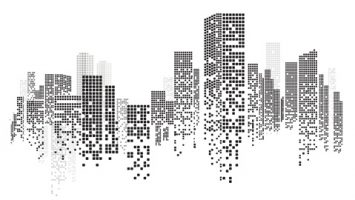
Because of a disconnect between regulations and available chemical/regulatory information, a billion pounds of potentially valuable consumer chemical products (i.e. spray paint or household cleaner) are called “hazardous waste” and burned annually. To solve this problem, Smarter Sorting built the world’s first smart chemical database to bring data driven transparency to the chemical waste stream. By putting a world’s worth of chemical and regulatory information into the hands of a waste depot employee, we enable them to avoid categorizing product as waste, creating new waste to value supply chains that allow products to be reused. The bonus is that it is incredibly expensive to ship and incinerate “hazardous waste.” So by increasing their reuse, cities also save a significant amount of money.
To test the idea and the technology, Smarter Sorting partnered with Austin Resource Recovery. By taking a pro-active interest in innovation, Austin Resource Recovery effectively served as Smarter Sorting’s partner and launch pad, helping the company to build a technology that not only helped the city of Austin move closer to their zero waste goal, but now also helps 16 other cities increase reuse and save money.
Q: What does the term ‘smart city’ mean to you, and how does your project contribute to a larger smart city vision?
A: Smart City refers to the idea that cities can take a proactive interest in innovation that improves quality of life, advances sustainability goals and speeds the creation of a more livable urban future. Cities that embrace Smarter Sorting are identifying themselves as sustainability leaders that will leave no stone un-turned in their efforts find immediate solutions to legacy problems from our less aware past.
Q: Why is the implementation of your project transformational in our current society?
A: The implementation of our project illustrates an incredibly interesting, righteous cycle. Local activists in Austin successfully pressured the city to adopt Zero Waste Goals. By adopting these goals, a mandate was created to cut waste any way possible. For this reason, the city of Austin was open to partnering with Smarter Sorting to explore ways of keeping consumer chemical products out of the incinerator. And finally, the reuse Smarter Sorting enables happens through our non-profit partner Habitat for Humanity ReStore, meaning that Austin Resource Recovery’s reuse directly helps Habitat achieve its goal of providing affordable housing for local residents.
We believe this model of municipal/business/non-profit partnership is an excellent example of what happens when parties work together to align incentives and solve problems.
Q: What advice did you receive along the way that helped you complete your winning project?
A: “Keep trying.” So often when starting a company or a new project, obstacles seem insurmountable. However, persistence in the face of adversity eventually enables solutions to be found.
Q: What advice would you give a city community or a solution provider looking to implement a municipal-level project?
A: Find partners. Navigating municipal structure is not simple. But if you get buy-in from internal and external stakeholders early, it is much easier to convince government entities to take a chance on innovative, potentially transformative solutions that haven’t yet been proven in the open market.
Q: What does it mean to you to win the Smart 50 Awards?
A: We are honored to be acknowledge and thrilled that the important innovation we unlocked along with the city of Austin is being highlighted, likely creating new opportunities to partner with other municipalities.


